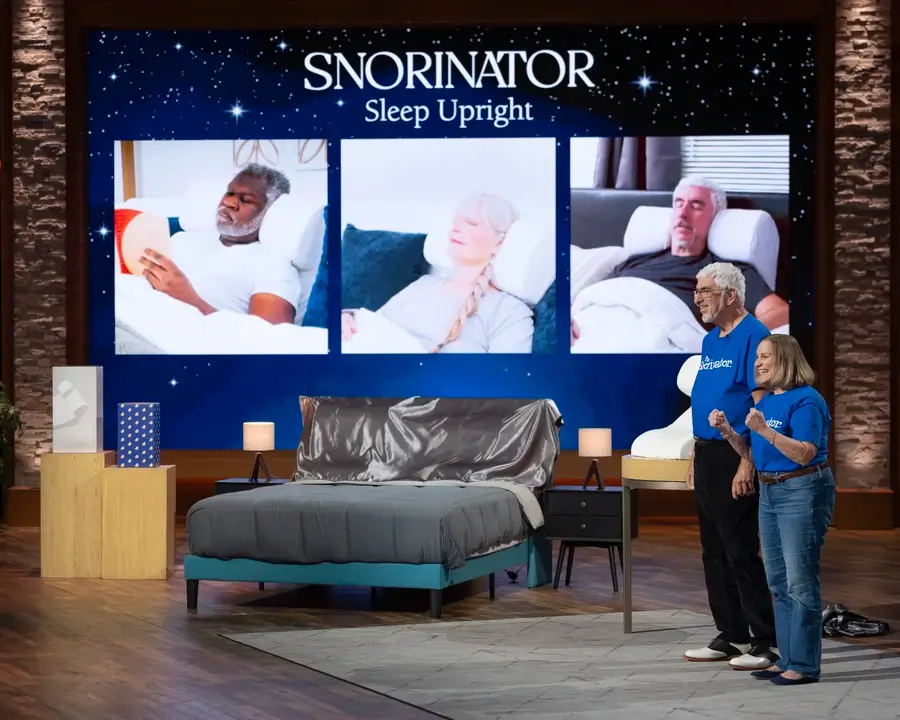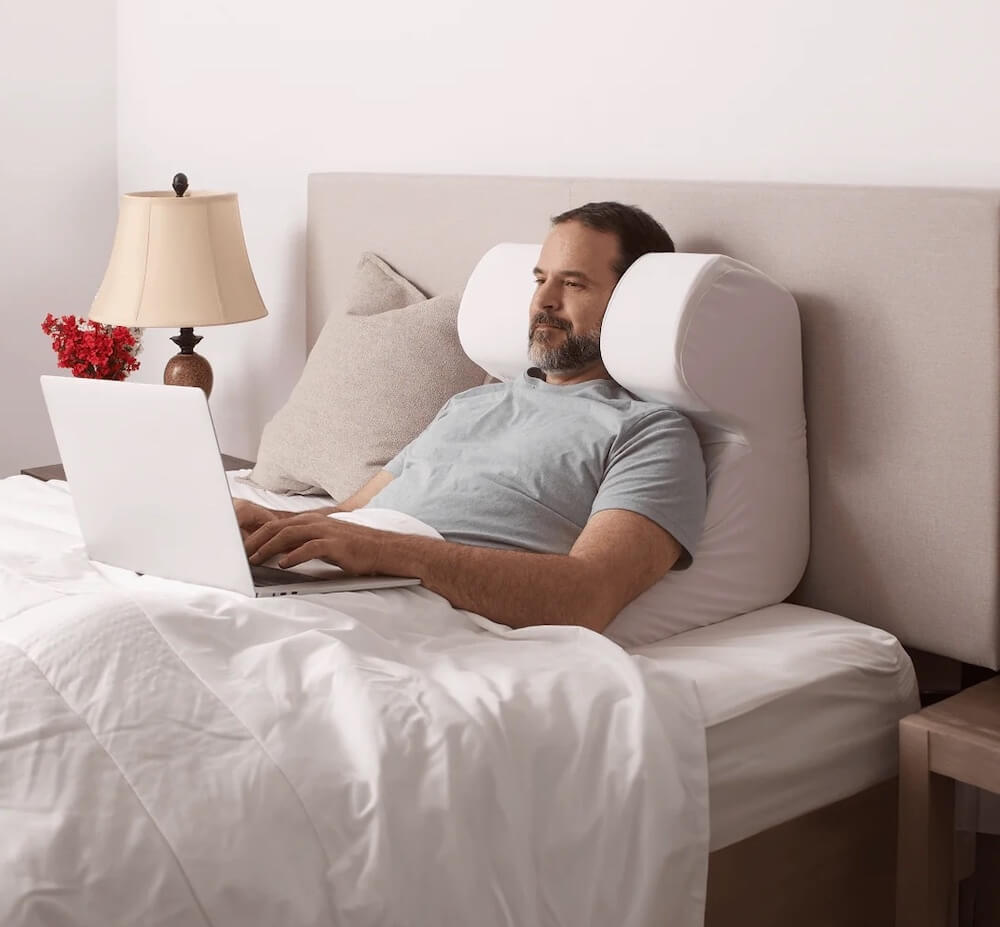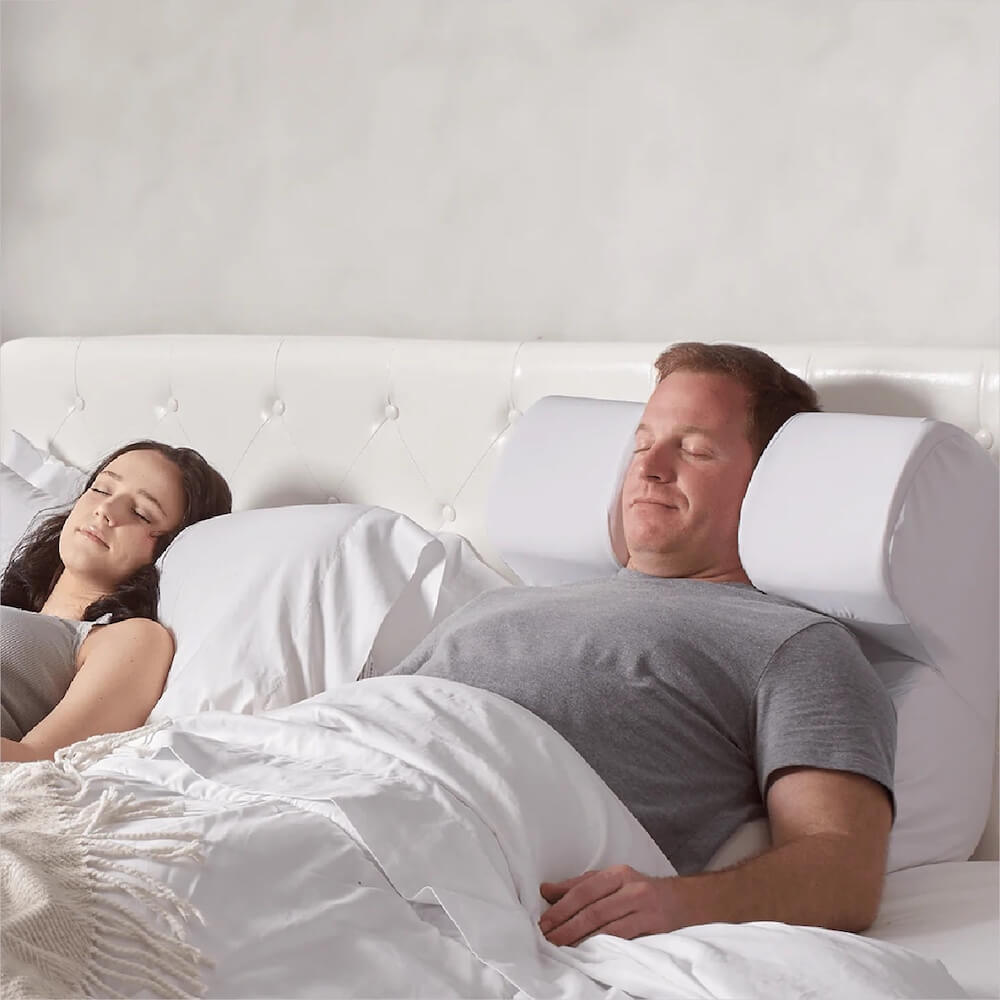Lloyd Ecker snored so loudly that his wife Susan made him sleep on the couch. He tried nasal strips, mouthpieces, adjustable beds—none of it helped. One night, while searching online, he came across a medical description of something called the “Fowler’s position,” a steep reclining angle used in hospitals to help patients breathe more easily. The next night he stacked pillows to imitate it and slept without waking himself up.

He spent the following weeks shaping foam into angled blocks. The idea was simple: hold the head and torso upright just enough to keep airways open, but not so much it felt like sleeping in a chair. He cut and glued pieces in his garage, working through over a dozen versions. One included a curved cradle for the head, another added lumbar support. The version that worked became the Snorinator.
Lloyd and Susan had run businesses together before. In the ’90s they sold novelty hats for expectant parents and eventually expanded into children’s media. They brought the same approach to this project—self-funded, hands-on, and built around a single product. They didn’t go to stores. They filmed their own demos, ran a crowdfunding campaign, and used the early orders to pay for the first round of manufacturing.

The Snorinator is shaped from high-density memory foam and holds the user at a 60–66° angle. There are no electronics or moving parts. You place it on the bed against the wall or headboard, lean back, and sleep. The angled wedge supports the lower back while a top cradle cups the head. The foam is CertiPUR-US certified, and the cover is removable.

They sell the pillow directly through their website. Every sale comes with a printed instruction guide and a small card explaining the Fowler’s position. Lloyd says they aren’t claiming to treat sleep apnea or diagnose anything. The goal was just to stop snoring enough that he could share a bed again.
Susan still helps run the business. Their days of trade shows and parenting expos are behind them, but the process hasn’t changed much. Lloyd designs the product. Susan runs the backend. They answer emails themselves. And the foam still ships from the same factory that cut their first batch.

